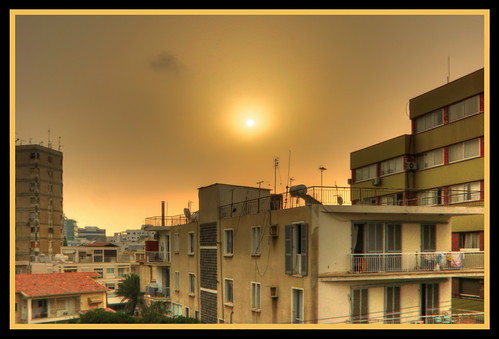How Has Cal Football Performed in the Humidity?
After the disappointing showing by the Bears at Maryland, many fans wondered how much the humidity adjustment played a factor. Zack Follett himself said that the team struggled its way throughmost of the game.
“It was tough,” said Follett. “The offense was not firing in the first three quarters and the defense was playing a little sluggish. To tell you the truth, this humidity was tough. With this heat and humidity, I was over-heating in the game but I think once we got our second wind as a defense in the second half, it was easier to feel more grounded. I don’t think the trip did anything to us. This was a tough heat to battle. We are not used to this humidity and they kind of had the advantage there.”
For those who want some historical perspective on the Bears’s East Coast performance, I’ll give some major props to RealBear65 from the Bear Insider for compiling this partial list of the opponents we’ve faced in the most humid locations.
These temperatures are fairly relative. If anyone has any corrections let me know.
12/26/31 – Georgia Tech – Won 19-6
12/26/36 – Georgia Tech – Lost 7-13
12/28/40 – Georgia Tech – Lost 0-13 (no temperatures listed before 1940)
10/13/62 – Duke – Lost 7-21 (84 degrees F, 96% humidity)
10/10/64 – Miami(F) – Won 9-7 (night game) (73 degrees F, 63% humidity)
09/11/71 – Arkansas – Lost 20-51 (81 degrees F, no humidity given)
09/15/73 – Alabama – Lost 0-66 (86 degrees F, 97% humidity)
09/14/74 – Florida – Lost 17-21 (93 degrees F, 97% humidity)
09/11/76 – Georgia – Lost 24-36 (78 deg F, 77% humidity)
09/10/77 – Tennessee – Won 27-17 (84 deg F, 93% humidity)
09/16/78 – Georgia Tech – Won 34-22 (80 deg F, no humidity listed)
09/13/80 – Florida – Lost 13-41 (84 deg F, 97% humidity)
09/12/81 – Georgia – Lost 13-27 (87 deg F, 93% humidity)
10/03/87 – Tennessee – Lost 12-38 (59 deg F, 55% humidity)
09/16/89 – Miami(F) – Lost 3-31 (91 deg F, 90% humidity)
10/04/97 – Louisiana Tech – Lost 34-41 (69 deg F, no humidity recorded)
12/04/04 – So. Miss – Won 26-16 (52 deg F, 77% humidity)
09/02/06 – Tennessee – Lost 18-35 (81 deg F, 90% humidity)
Examining these points on the graph, there are some observations we can note between weather conditions and game results.
As you can see from the data and the graphs, most of these are losses. The Bears were 5-13 in these humid climates, and as we move past the 100 degree heat index, Cal was 0-6. Their best win appears to be a 27-17 win in Rocky Top in 1977 at temperatures bordering on 100.
One caveat to these results though is that a lot of these Cal teams…well…did not perform very well through the course of the regular season. So it could be argued by the common layman fan that the teams they faced hopelessly outmatched them. One astute poster noted the differences between the Eastern team’s standings and Cal’s standings that year, so it could just be argued that the stronger team prevailed in most games. Even the Tennessee win was against a weak Vol opponent, and Cal was fairly strong with eight total wins by the end.
Nevertheless, last week’s Maryland game tied for the second highest on the heat index–temperatures on the field probably felt as high as 126 degrees Fahrenheit as the game wore on. Humidity was a perfect 100%. It has yet to bare out how strong either team will turn out, so we’ll have to revisit this argument at the end of the season. But it can definitely be argued that the conditions took a toll early and kept Cal from focusing in-time for the game.
Here is a personal anecdote from a player at the 1980 Florida game.
My brother and I played in that game. We came from Louisiana where it was even more humid to start Fall Camp in Berkeley where it was mid-50s and foggy. Then we flew down to play a 12:30 game in Tampa (school had not yet started in Gainesville) where it was 90 degrees and 90 per cent humidity. It was tied 13-13 at half time and people were just dying from the water loss in the locker room. The final score – 42-13 – was entirely humidity based. Five weeks later we play Michigan in Ann Arbor. We practice in 90 degree weather in Berkeley and play in snow in Michigan. A true scheduling disaster.
How much do you think the humidity affects the performance of our Golden Bears when they travel east? And do any Bears fans or ex-players have their own personal stories to share of enduring three hours of the muggy heat?
Also, if anyone has any more games, let me know in the comments and I’ll add them in. The initial spreadsheet is here; if you want I can add you in as a collaborator and you can add in the games Cal has played out East.
All temperatures courtesy of Weather Underground’s historical database. Heat indices deduced via NOAA’s calculator.- None Found





Comments are closed.